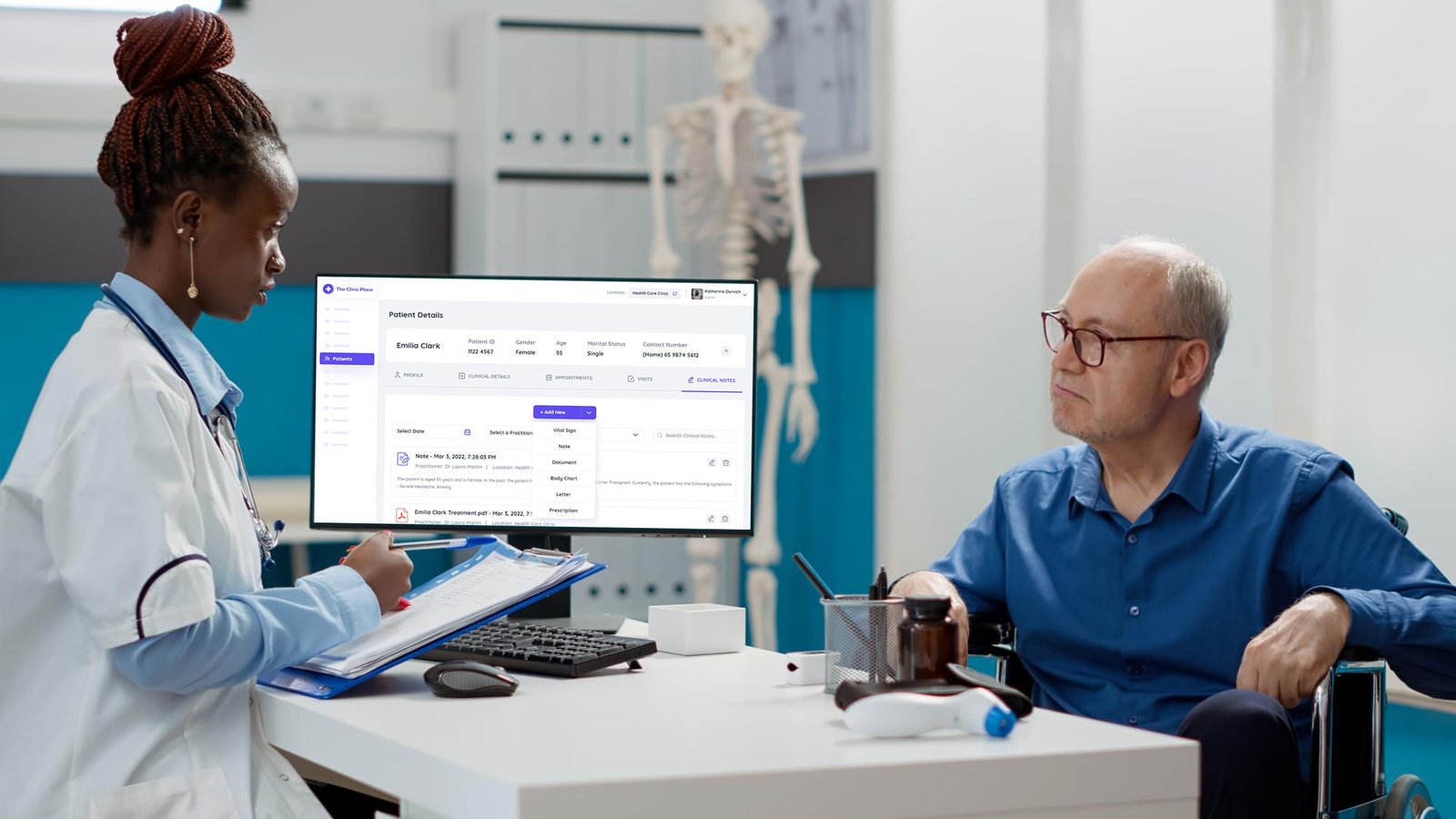Electronic Health Records and Clinical Decision-Making: How Data is Changing the Way Doctors Treat Patients
The Clinic Place Team
EHRs make medical histories, prescriptions, allergies, and test results easily accessible to doctors, changing how they treat patients. This information is very important for making clinical decisions because it helps doctors choose the best diagnosis and treatment options.
One of the main benefits of EHRs is that they can make patients safer. EHRs can assist doctors avoid prescribing prescriptions that may interfere with a patient’s current medication regimen or provoke allergies by giving a complete record of a patient’s medical history. This can help doctors prevent the risk of adverse drug reactions. Based on weight and other characteristics, they can also warn doctors to potentially dangerous medicine dosages.
EHRs can also improve the accuracy and speed of diagnoses. When doctors have access to the whole medical history of a patient, it is much simpler for them to recognise trends and potential risk factors that may be contributing to the symptoms of that patient. This can lead to faster and more accurate diagnosis and more effective treatment approaches.
EHRs allow doctors to easily track and monitor patients’ progress, improving treatment quality. Doctors can determine the potential need for more tests or treatment by reviewing a patient’s medical history.
Electronic health records (EHRs) provide a lot of potential benefits, but there are still a few hurdles that need to be overcome. Interoperability—the ability of different EHR systems to communicate and share data—is a major concern. This ensures that hospitals and clinicians may access all patients’ medical records.
Data security is still another difficulty. EHRs store delicate personal and medical data, thus it’s critical to make sure that this data is kept secure and private. To prevent data breaches, this calls for strong security measures like encryption and secure login procedures.
Conclusion: By enabling rapid and simple access to vital patient data, electronic health records (EHRs) have significantly changed how clinicians care their patients. Although interoperability and data security are obstacles that must be overcome, the advantages of EHRs in terms of patient safety, the precision of diagnoses, and overall quality of care make them indispensable instruments in contemporary healthcare.
Healthcare organisations may choose to take The Clinic Place into consideration as one contemporary EHR option. A number of elements in The Clinic Place’s clinical practise management system are intended to increase the effectiveness and efficiency of healthcare practises. It provides a variety of solutions on one simple platform for appointment scheduling, patient records administration, invoicing and payment, and more.
The Clinic Place can be a good option to consider if you run a healthcare facility and are wanting to improve patient care while streamlining your operations. With its cutting-edge EHR technology and extensive toolkit, you can manage your practise more successfully, freeing up your time to concentrate on your patients, who are what really matter.
You may also like these articles!

Streamline Your Clinical Documentation with SOAP Notes
Share via:Clinical notes are a crucial tool for recording patient visits and giving a history of the care given. In a clinical context, SOAP notes are a standard format for recording patient encounters. Subjective, Objective, Assessment, and Plan make up their four fundamental structural pillars. These are some possible models for clinic clinical notes: Subjective: […]
The Clinic Place Team

AI and the Health Industry: How Technology is Transforming Patient Care
Share via:In a number of ways, artificial intelligence (AI) is altering the way we think about healthcare, from enhancing diagnosis and treatment planning to streamlining administrative duties. There are many possible uses for AI in healthcare, and it is obvious that this technology has the ability to completely change the way we provide patient care. […]
The Clinic Place Team

Best practices for patient communication and education in chiropractic care
Share via:Chiropractic care must include effective patient education and communication. Chiropractors may foster trust, increase patient comprehension and compliance, and provide better results by giving patients information that is succinct, accurate, and clear. We will look at the greatest methods for patient education and communication in chiropractic therapy in this blog post. Why is it […]
The Clinic Place Team